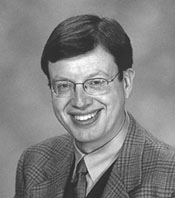 Learning A Lesson
Learning A Lesson
It has been said by some in the mass media that each and every American will remember where they were and what they were doing on September 11, 2001. It has been said we will remember that day, that awful day, just as we had the day the Challenger blew up, the day John F. Kennedy was assassinated, and the day Pearl Harbor was bombed.
Whenever a horrible event occurs, I immediately think of these words of wisdom from my father: "Things always happen for a reason and they always work out for the best in the long run." On countless occasions, whether it has been a personal tragedy, or a tragedy experienced by our society, I was always confident at the time that he would be proven wrong. To date, however, his philosophy has always won out over fear, anger, and at times hopelessness. Just as we triumphed after other disasters, I believe that every citizen, every family, and our entire country will grow because of what happened to the over 6,000 that were killed needlessly and the 7,000 that were injured on September 11th.
As parents, grandparents, community activists and community leaders, we need to search for lessons from this horrible experience. In the two days following the collapse of the World Trade Center and the partial destruction of the Pentagon, I received several calls from Americans wanting to talk to me about the thesis of my book, The Awakening of a Surgeon. They called to tell me that they had utilized my philosophy of prevention in trying to make sense out of the mayhem. The callers suggested that I immediately get in touch with individuals within government and help educate them on how to become proactive rather than reactive so that disasters of this nature never occur again. The callers felt that if government officials thought in a more proactive or preventive manner, such as we are doing in the field of sports medicine, that possibly our country and our world would become a safer place.
Needless to say, I could not agree more. The politics of prevention and the barriers to preventive efforts - whether it is in sports medicine, heart disease, cancer, or terrorism - are similar. Over the past seventeen years, I have found that the single greatest barrier to preventive efforts is the fact that we are taught throughout our educational system to be reactive rather than being proactive. To think in a proactive or preventative manner is a much different mindset than thinking in a reactive mindset. It involves a different set of observation skills and a different set of implementation skills.
Unfortunately, from kindergarten through graduate school, reactive thought is the norm and preventative thought is completely ignored. In my own case, the use of a proactive thought process was integrated in my family life and not taught in any of my schooling throughout grammar school, high school, college, medical school or residency. I believe, as parents, grandparents, community leaders and activists, we owe it to those around us, no matter what the age, to start to integrate proactive and preventative measures and thought in our daily teachings rather than purely a reactionary philosophy and thought processes.
The second barrier that we have faced dealing with preventive intervention is that the status quo carries with it great momentum. We have a saying at The Institute for Preventative Sports Medicine that "When it comes to prevention, caring is the first step, but for it to be more than empty rhetoric action must follow." The operative word in this statement is action. Unfortunately, it is much easier to sit by and let the world pass us by and then react, as opposed to being proactive in order to prevent a sports injury, cardiac disease, cancer or, for that matter, terrorism. It is much easier to let the world shape us rather than let us shape the world.
The third barrier to preventative intervention focuses is financial. In many instances, the financial powers benefit from the status quo, and ingrained in reactionary behavior, and have no financial interest in preventive interventions. Therefore, preventive interventions die on the vine because there are no financial incentives for them to grow and take shape. We have found immense pressure against our preventive interventions, as I point out in the book, by large financial interests, including insurance companies, HMOs, government officials, the sports equipment industry, and leaders within youth and adult sports that have a vested financial interest in the status quo.
Unfortunately, in order to move the ball down the field in the preventive world, one has to take on these vested financial interests. Many are not willing or are afraid to do so, or just don't want to expend the energy. I believe as parents, grandparents, community activists and leaders we owe it to our country and to our children to rise to the challenge and fight the entrenched establishment. We must put aside our own fears and become involved. If we fail to do so, we are our own terrorists and our own way of life will be forever altered.








